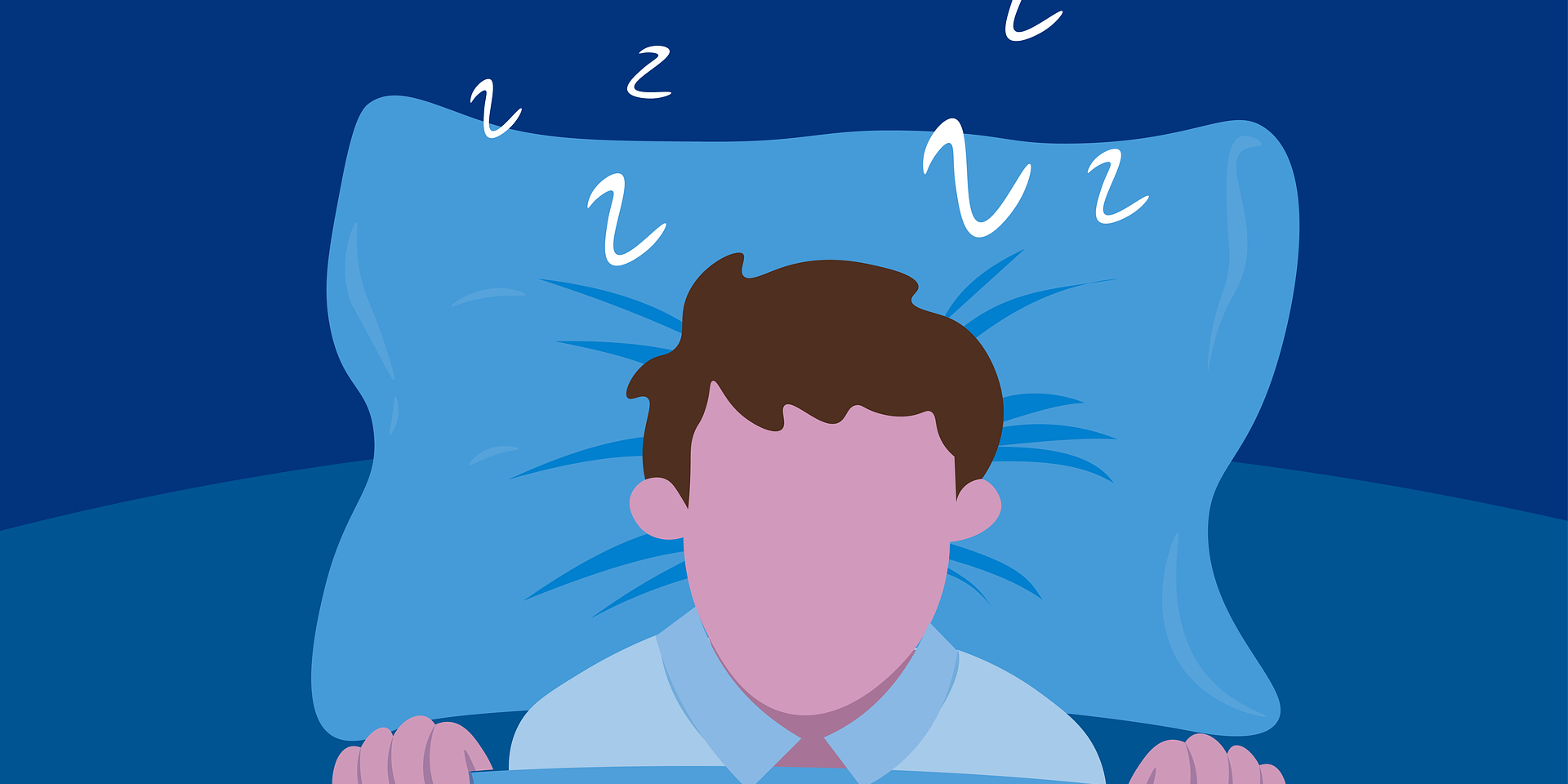Sleep, something we all wish we had more of! While yawning and feeling tired all the time can be a bummer, a lack of zzz’s can have a significant impact on your health. Experts say you should aim to get between seven and eight hours of shut eye each night.
Sometimes the pace of modern life barely gives you time to stop and rest. It can make getting a good night’s sleep on a regular basis seem like a dream.
Sleep is as important for good health as diet and exercise. Good sleep improves your brain performance, mood, and health.
Not getting enough quality sleep regularly raises the risk of many diseases and disorders; these range from heart disease and stroke to obesity and dementia.
There are 3 major things that encompass healthy sleep, sleep quality, uninterrupted and refreshing sleep and a consistent sleep schedule.
People who work the night shift or irregular schedules may find getting quality sleep extra challenging. Times of stress can disrupt your normal sleep routine as well.
The Benefits of Getting a Full Night’s Sleep
- Sleep Can Boost Your Immune System – When your body gets the sleep it needs, your immune cells and proteins get the rest they need to fight off whatever comes their way, like a cold or the flu.
- Gaining Zzz’s Can Help Prevent Weight Gain – Racking up eight full hours of sleep is not going to result in losing the pounds by itself, but it can help your body from packing on the pounds. If you do not get enough sleep, your body produces ghrelin – a hormone that boosts appetite. Your body also decreases the production of leptin, a hormone that tells you your full. Put them both together and that is a dangerous combination for late-night snacking. When you do not sleep enough you get more stressed and do not have the energy to fight off junk food cravings.
- Sleep Can Strengthen Your Heart – Not getting enough sleep can lead to heart health problems like high blood pressure or heart attacks. That is because lack of sleep can cause your body to release cortisol, a stress hormone that triggers your heart to work harder. Just like your immune system your heart needs rest to function powerfully and properly.
- Better Sleep = Better Mood – Sleep can lead to good moods. If you sleep well, you wake up feeling rested. Being rested helps your energy levels soar. When your energy is up, life’s challenges will not annoy you as much. When you are not annoyed, you are not as angry. If you are not angry, you are happy.
- Sleeping Can Increase Productivity – Working late and putting off a good night’s rest could have an adverse effect at work or school. Sleep has been linked to improved concentration and higher cognitive function, both of which can help you be successful at work. One restless night can leave you feeling frazzled, making it more likely that you will make mistakes that a pot of coffee will not be able to fix. Speaking of coffee, the more tired you feel, the more likely you are to reach for an afternoon cup. While that may seem to fix the afternoon crash problem you experience, the extra caffeine late in the day could set you up for another sleepless night.
- Your Lack of Sleep Can Be Dangerous to Those Around You – You are twice as likely to get in a car accident when you are cruising on six to seven hours of sleep compared to if you get a full eight hours. Sleep less than five hours and your chances quadruple! That is because your reaction time slows down when your brain is not fully rested.
- Sleep Can Increase Exercise Performance – Sleep affects all types of exercise performance. Under-the-cover recovery helps with hand-eye coordination, reaction time and muscle recovery. Depriving yourself of sleep can have a negative impact on strength and power.
- Sleep Improves Memory – Even though sleep gives your body the rest it needs, your mind is still hard at work. It is processing and consolidating your memories from the day. If you do not get enough sleep, who knows where those memories go.
Ways to Get a Better Night’s Sleep:
- Stick to a sleep schedule – Go to bed and wake up at the same time every day, even on the weekends.
- Get some exercise every day – But not close to bedtime
- Go outside – Try to get natural sunlight for at least 30 minutes every day
- Avoid nicotine and caffeine – Both are stimulants that keep you awake. Caffeine can take 6-8 hours to wear off completely
- Do not take naps after mid-afternoon – And keep them short
- Avoid alcohol and large meals before bedtime – Both can prevent deep, restorative sleep
- Limit electronics before bed – Try reading a book, listening to soothing music, or another relaxing activity instead.
- Create a good sleeping environment – Keep the temperature cool if possible. Get rid of sound and light distractions. Make it dark. Silence your cell phone.
- Do not lie in bed awake – If you cannot fall asleep after 20 minutes, get up and do a relaxing activity until you feel sleepy again.
If you are not sleeping well, talk to your healthcare provider. You have a lot of options for getting better sleep.
That may include treating sleep disorders and/or improving your sleep habits. Your provider may also be able to suggest medications or supplements to improve your sleep.
But the most important thing is that you make sleep a priority. Set aside at least seven hours a night, and eight or nine if possible.
We offer a few different supplements to help with sleep.
Cerenity PM is a comprehensive formulation created for patients experiencing occasional sleeplessness. Cerenity PM promotes a healthy sleep cycle by naturally boosting levels of serotonin, GABA and melatonin using bioactive cofactors and amino acids. Phosphatidylserine is also included as a vital ingredient for those with elevated evening cortisol levels that may be contributing to frequent waking.
4 capsules taken 1-2 hours before bedtime or as recommended by your health care professional
Melatonin is a hormone produced by the pineal gland that plays a key role in regulating the body’s circadian rhythms and induction of sleep. It plays an essential role in regulating the sleep cycles, and when supplemented, can be helpful for those who have irregular sleep patterns.
1 or more tablets per day or as recommended by your health care professional
DoTerra Lavender essential oil is often considered a must-have oil due to its versatile uses. Its calming and relaxing aroma promotes a peaceful environment conducive to sleep and it can ease feelings of tension when used internally.
- Add a few drops of lavender oil to pillows, bedding, or bottom of feet at bedtime
- Diffuse at night to calm restlessness
DoTerra Serenity has a calming aroma that creates a restful environment at bedtime.
- Diffuse at night to calm a restless baby or child
- Apply to bottoms of feet at bedtime to help unwind before going to sleep
Request an appointment by texting 850-629-0345 or call our office today at 850-309-0356.

